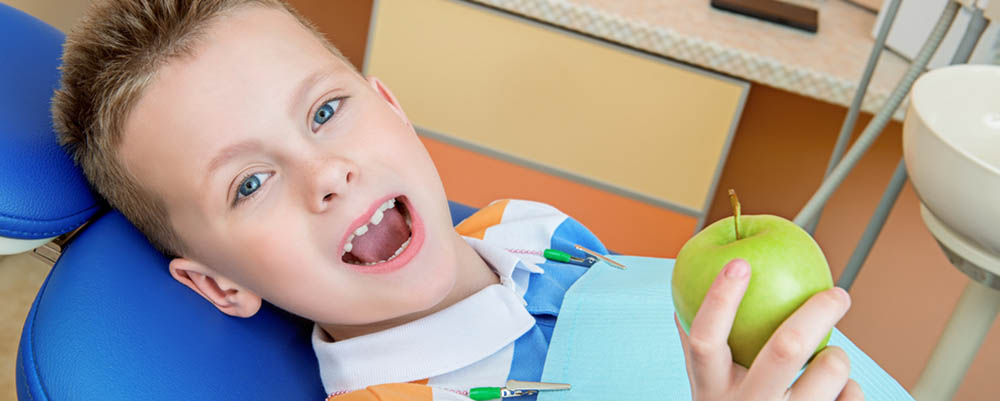Pulpotomy for Children

Pulpotomy Explained
The Importance For Pulpotomy for Children
A pulpotomy is a procedure to treat an infected primary tooth. The most common cause of tooth infection is tooth decay. Untreated dental cavities destroy tooth enamel and allow bacteria to infiltrate the soft tissue inside the tooth, known as the tooth’s pulp. Nerves run through the tooth pulp, making them painful when infected.
Tooth trauma can also lead to an infection. If a child falls and cracks or breaks a tooth, the natural bacteria in your child’s mouth penetrates the inside of the tooth. Over time, the pulp becomes infected.
If your child suffers trauma to the mouth and teeth, contact us immediately. Prompt dental care following an oral injury may prevent infection and tooth loss.
The pulpotomy procedure involves removing the infected pulp from the tooth and thoroughly disinfecting the tooth’s inner chamber. After disinfection, our highly trained pediatric dentist will seal the tooth or teeth with a crown or filling for protection for infection and further damage.
As a parent, ensuring the well-being of your child’s oral health is paramount. From the moment those first baby teeth appear, establishing a routine of dental care becomes essential. However, sometimes despite our best efforts, issues arise, requiring specialized attention. Due to an accident or a circumstance out of our control, a pulpotomy for children procedure may be necessary.
At Surprise Pediatric Dentistry and Orthodontics, we recognize the significance of pulpotomy in preserving the smiles of our young patients.
Understanding Pulpotomy: A pulpotomy is a dental procedure performed on primary (baby) teeth when decay or infection reaches the pulp – the innermost layer containing nerves and blood vessels. During a pulpotomy, the infected portion of the pulp is removed, and the remaining healthy tissue is treated to preserve the tooth’s structure and function.
The Importance for Children: Primary teeth play a crucial role in a child’s development. They aid in proper chewing, speech development, and guide the eruption of permanent teeth. Losing primary teeth prematurely due to decay or infection can lead to misalignment issues and impact the health of permanent teeth.
Moreover, untreated dental problems in childhood can cause pain, discomfort, and potentially affect a child’s overall well-being. By addressing decay or infection early through procedures like pulpotomy, we can prevent further complications and promote oral health from a young age.
Our Approach in Surprise, AZ: At our pediatric dental practice, we prioritize the comfort and safety of our young patients. Our team of experienced pediatric dentists utilizes gentle techniques and child-friendly environments to ensure a positive experience for every child undergoing a pulpotomy procedure.
Additionally, we emphasize the importance of preventive care and education, empowering parents and children with the knowledge and tools needed to maintain optimal oral health between dental visits.
Our commitment to pediatric dental care in general, and pulpotomy for children in specific, extends beyond routine check-ups. Through procedures like pulpotomy, we strive to preserve your childs dental health and a beautiful smie for a lifetime to come.
How Does a Pulpotomy Differ From a Root Canal?
Pulpotomy and a root canal are similar in that both procedures treat infections of the pulp and inner chamber of the tooth. However, a root canal is technically a pulpectomy — the dentist removes all the pulp and replaces it with a thermoplastic filling known as gutta-percha. Conversely, a pulpotomy will remove the infection but preserve as much of the pulp as possible.
The goal is to keep the tooth alive, which allows the root to mature and helps adult teeth to push through later.
Is a Pulpotomy Painful?
No, it is not. A pulpotomy is less invasive than a pulpectomy. Before starting the procedure, the pediatric dentist numbs your child’s mouth. If necessary, Surprise Pediatric Dentistry and Orthodontics offers sedation dentistry to help your child relax. Your child may experience minor discomfort for a day or so after the procedure.
